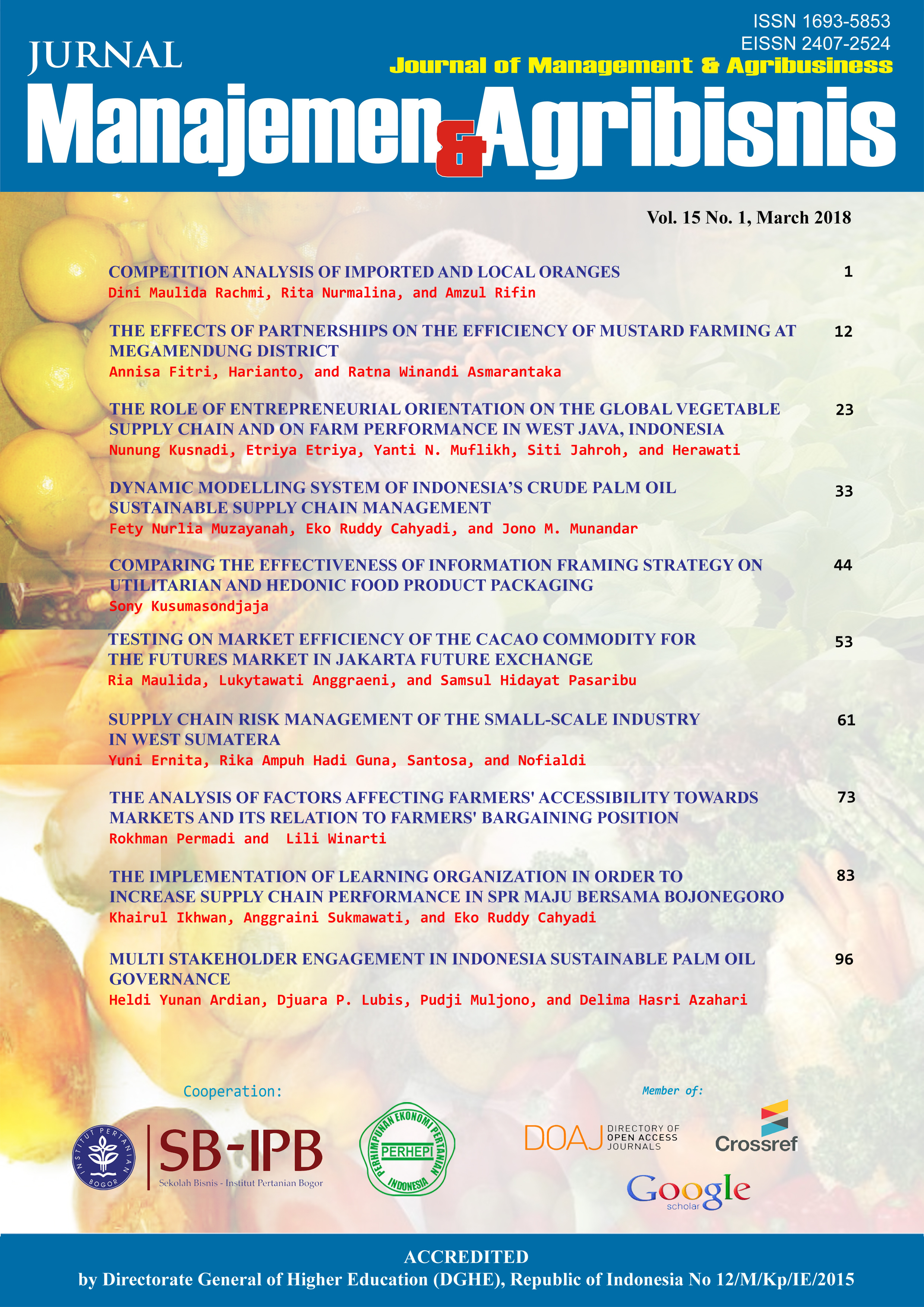Multi Stakeholder Engagement in Indonesia Sustainable Palm Oil Governance
Abstract
Natural resource management generally involves parties with conflicting interests and roles. The emergence of a negative issue on palm oil development in Indonesia heralded by NGOs and vegetable oil competitor countries, for some groups, is considered merely a trade war. The rapid development of Indonesia's oil palm has made this commodity a source of global vegetable oil as well as risen a controversy over its sustainability aspects covering environmental, socio-economic and health issues. The significant increase of palm oil research led to the need to enrich the study's discussion on the sustainability aspect and involved the participation of the related stakeholders. This study is an early stage of a research based on the environmental communication theory to identify the problems and analyze the stakeholders involved in palm oil governance in Indonesia by using stakeholder analysis tools. The methods of data collection in this study included literature review, text analysis, in-depth interviews as well as direct observations. The study finding shows that the Ministry of Agriculture as the main actor in palm oil governance in Indonesia is required to share its authority. This indicates that palm oil sustainability issue is not the responsibility of a particular ministry but has become a national issue that requires the participation and collaboration of all relevant stakeholders.
Authors
Authors who publish with this journal agree to the following terms:
- Authors retain copyright and grant the journal right of first publication with the work simultaneously licensed under a Creative Commons Attribution License that allows others to share the work with an acknowledgement of the work's authorship and initial publication in this journal.
- Authors are able to enter into separate, additional contractual arrangements for the non-exclusive distribution of the journal's published version of the work (e.g., post it to an institutional repository or publish it in a book), with an acknowledgement of its initial publication in this journal.
- Authors are permitted and encouraged to post their work online (e.g., in institutional repositories or on their website) prior to and during the submission process, as it can lead to productive exchanges, as well as earlier and greater citation of published work (See The Effect of Open Access).

